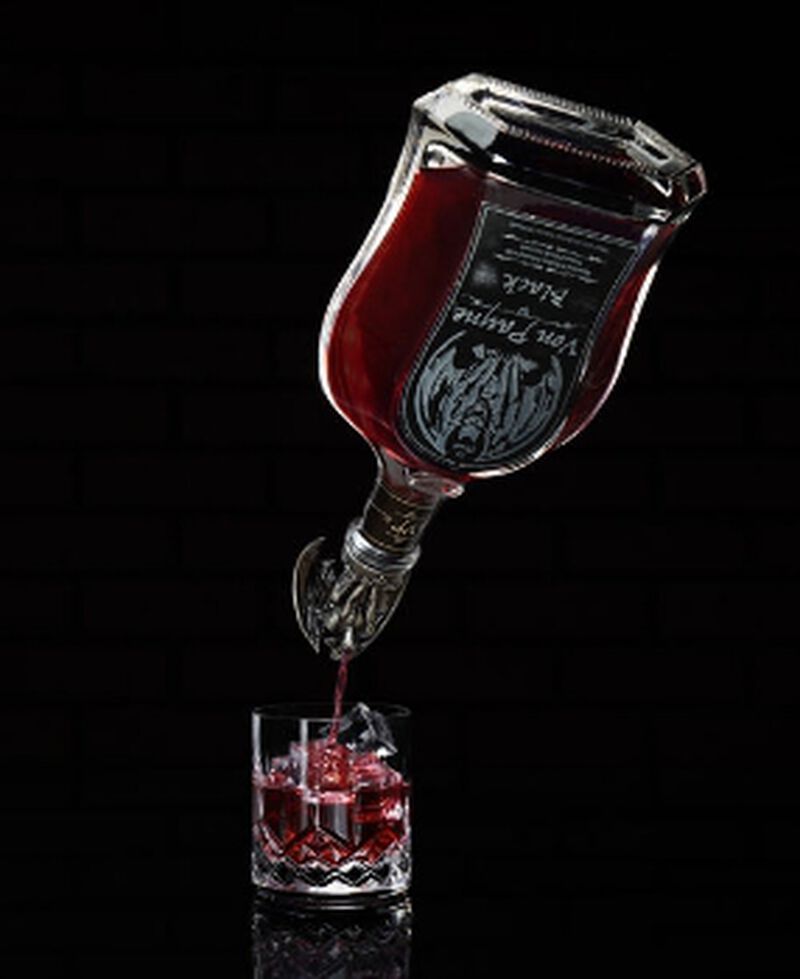
Von Payne Black Whiskey
Whiskey
Behind the Brand
Lee Diaz, ReserveBar Staff Writer
No one can deny that starting a new spirits brand is difficult at best. Yet, that did not stop Chanel Turner, founder and CEO of FOU-DRÉ Vodka, from not only creating one of the most unique vodkas on the market, but also designing an iconic bottle while helping other minorities succeed in the industry. We sat down with Chanel to learn more about her vodka, her inspiration, and what she plans on doing next.
Well, FOU-DRÉ was created and inspired, I would have to say, by accident. I was amongst friends when this idea came to mind. Ordinarily, I'm a vodka drinker. At that time, Belvedere was my vodka of choice. I was 25 years old when this all happened. I wanted to create a vodka that one could enjoy. I wanted to bring vodka back to why it was originally created, which was to be consumed neat, or over ice, or to cleanse the palate, but not necessarily to be masked with all these different juices and mixers.
People, especially when I was growing up, they wouldn't drink vodka straight. That's not even something that they would even consider. It was vodka and something, whether it be cranberry, orange juice, or some kind of mixture before you really get into the fancy cocktails. But it was never to say, “Can I get a vodka on the rocks or a vodka chilled?” You know it was the spirit that most people, when they thought about it, they thought about what they were going to chase it with or mix it with.
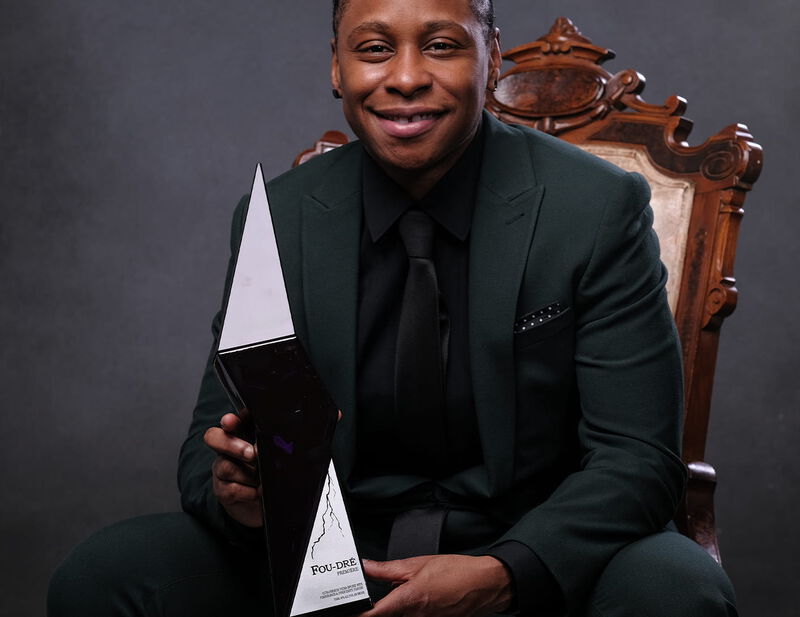
And I kind of wanted to change that. I wanted to create a brand that when they hear FOU-DRÉ and they learn that it's a vodka — because when some people first come into contact with FOU-DRÉ, they can't believe it's an 80-proof vodka — but that's what I really wanted, right? I wanted, when consumers come into contact with this product, the first thing isn't, “well, what can I mix it with?” They taste it in its natural form and actually can appreciate it in its raw form and enjoy it that way.
Of course, it does very well outside of its raw form. It's a great product for creating fancy cocktails, and it's very versatile. But more importantly, we wanted to create a spirit or a product that can be enjoyable for the consumer without having to mask it with all these mixers and juices.
I went through 8 months of Research and Development and almost a full year industry research to find our unique blend of 4 fruits and a root. That was a challenge back in 2009, when the craft spirits and “Get into the Industry” community had not yet flourished. The knowledge wasn’t readily available, so I had to work even harder to create a vodka that could stand out on the market and be enjoyed both in the raw form and in cocktails.
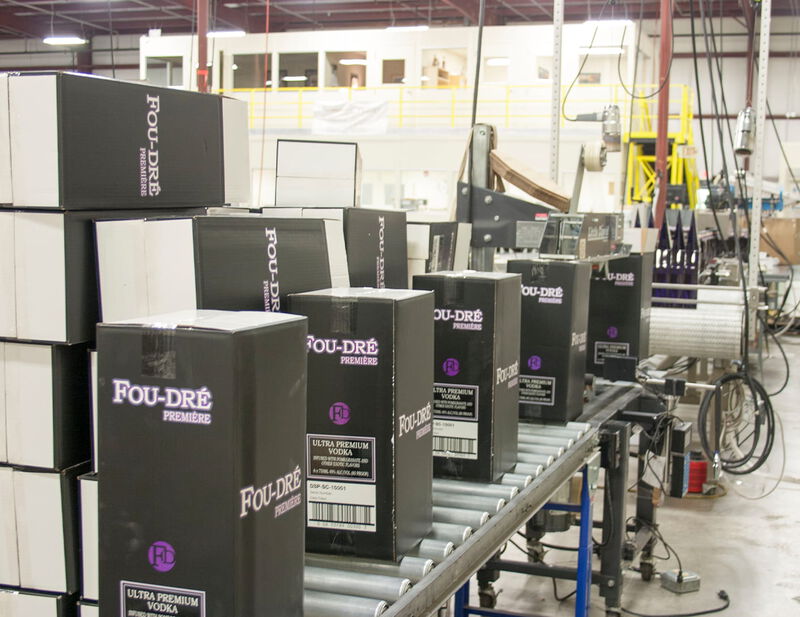
I graduated college at 22 with a degree in Business Administration. And really, like I said, it came by happenstance. It was an accident that I kind of fell into this whole thing. I never really saw myself owning a vodka brand and navigating this thing called the wine and spirit industry. I had no idea what I was getting into. If someone would have said to me, “While in college, would you get into this industry?” I probably would have said “H-E-Double-Hockey-Sticks.” Right? I would have said no. Growing up, I always wanted to be a nightclub owner. So I kind of stayed close to the industry to some degree because, with nightclubs, there is alcohol. But, I never actually thought I would be in this industry.
When I told my mother about it, she thought I was crazy. She just thought it was a very risky business. She thought it was something that would take a lot of money, and at 25 - what do I know? I'm thinking with the money that I did have to invest in it, that would kind of be enough, and I had no idea. So she thought it was risky. She knew it would cost a lot to even, not only just have a finished product ready for market, but once you have a finished product ready for market, that's when the real work begins.
That's when the marketing, the promotions, the PR, all that has to take place. And before that, you need distribution because, without distribution, you have this great product, but it can't get to the consumer because of how this industry is set up in terms of the three-tier distribution model. And going through the right channels to get your product to the consumer. You have to get to a distributor, and then only the distributor consults with a retailer, and then only the retailer can then sell to the consumer.
And there's so many hoops and so much red tape in this industry that was unbeknownst to me. I had no idea. I really just had to learn as I was going along. So while my mom thought I was crazy, she was definitely one of my biggest supporters. She's an individual that believes that you can achieve anything if you put your whole heart and self into it and if you're dedicated and focused. And I did, and I still do give everything. I gave this industry everything I possibly could with the resources and support that I had. I definitely had no idea what I was in store for.
But I got mixed reactions. I had friends that just thought it was so cool. They just said, “Oh, so you own a vodka now?” And they thought it was pretty amazing, but they have no idea what it really takes. I've had people even after me who have read my story and just became so inspired that I have to give the raw truth to them because it looks good. But everything glitters isn't gold. People have to really understand that when you're entering into an industry that you have very little knowledge about, you're in for a lot of rough patches. I mean, because you're going to end up paying to learn at the end of the day if you don't have the right mentors or if you don't have the right people guiding you.
When you think about the spirit industry, a lot of the brands that have been around, like Hennessy, for 100 years, and those are generally passed down generation after generation. These new brands that are being developed and created are first-generation brands. So really, they don't have the history and knowledge that some of the bigger brands have that's been passed down. These individuals, such as myself, they're really learning as they go. So it's definitely quite interesting.
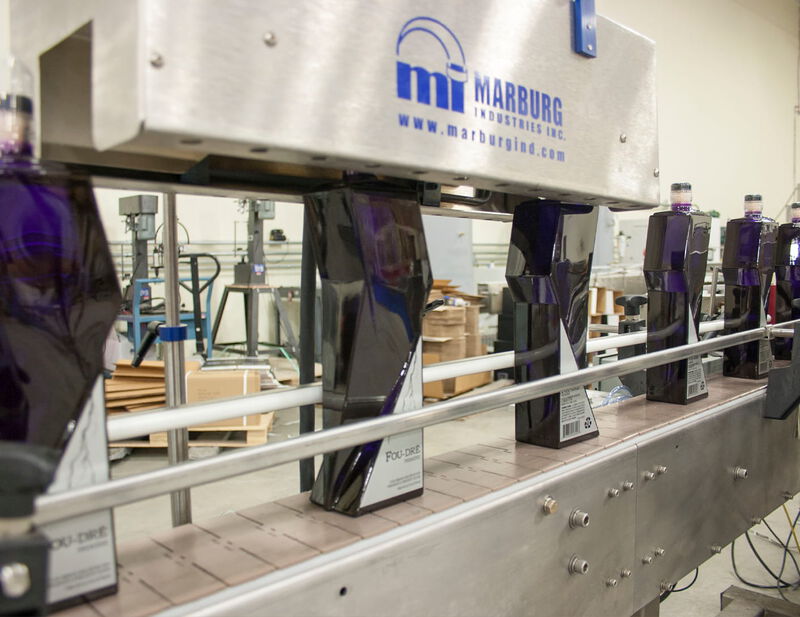
It was also something that people thought was crazy, right? With FOU-DRÉ, just the name and everything kind of just came together. I knew I wanted something different. And I wanted something that was striking, something that represented power, and just stood out. What I didn't realize, in my very early stages of developing this brand, is how the industry categorized spirits within an on-premises establishment and even within off-premise. In your liquor stores, they generally place everything — the vodkas, the gins, the whiskies, the rums — they categorize them, they put them all together.
What I noticed was, when you looked on the shelf, and you looked at vodkas, they kind of all look the same. It was a clear round bottle. They pretty much had maybe a different label, but nothing was really unique about them. Nothing was really different about them other than the label and maybe some design elements. What I realized as well, the spirit industry, especially in the space of vodka, was so and is still very much so saturated.
There's so many vodkas out here today that if I was going to create a vodka and even try to compete in this industry, I had to try to set myself apart as much as possible. I wanted a bottle that if it was going to be amongst other vodka brands, that it would stand out from the rest. At the time, you didn’t really see colors because most vodka bottles are clear. Now, a lot has changed since then. But in 2009, when my brand first started, you did not see vodka bottles that were uniquely shaped, nor did you find any vodka bottles that were colored. And so, I chose the color purple for our bottle because it means unity, it means togetherness, and it means power, and it means royalty. All those things really, really meant something to me.
Lightning, which is a very powerful element, was something that just came to mind. But I didn't like the word lightning. I didn't; it was so cliché. And so I said, well, with the bottle being made overseas, maybe we can find lightning spelled differently, maybe in another language. I liked how it sounded in French, and our bottles were being made in France anyway. So when I was speaking with my representative at the glass company, we hadn't even had a name yet for the brand, and I was speaking to him about it. And I asked him to say lightning in French to me, and he said, “it’s food.” I said, “like food, like you eat?” He was like, “not quite but….” I said, Okay, well. So that's how it sounds in French.
So what I did was I played around with translations and things of that nature. And what I realized once I put a hyphen in there, and then an accent over the “e,” it’s pronounced as “foo-dray,” and I really liked how that sounds. So we always say it's a play on the French word for lightning because we never want to disrespect the French. And we know that lightning in French doesn't have a hyphen in between or an accent over the “e.” So we say it's a play on the French word for lightning.
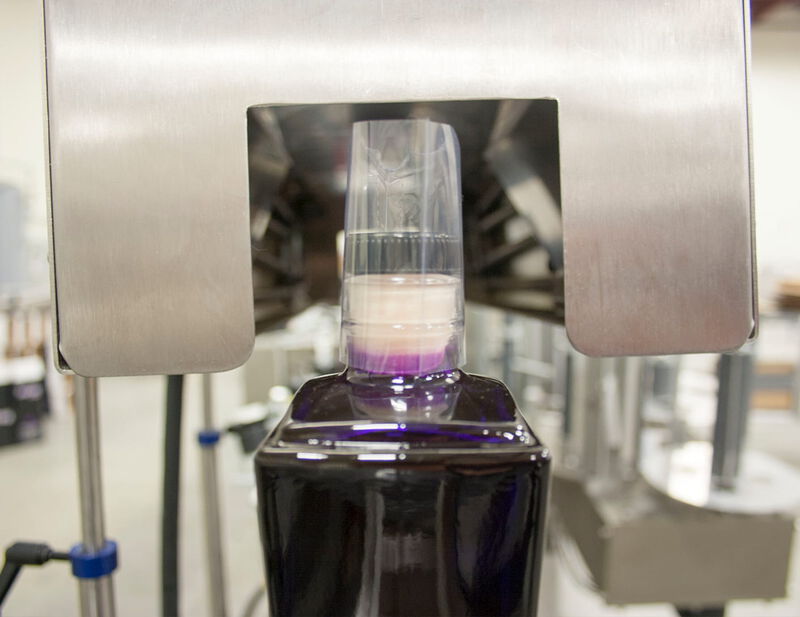
Of course, before they took on my project, it took months for me to find a glass manufacturer to even consider taking on my project. What I was told was, well, most bottles are round. Again, I had to educate myself on this industry. The glass blowing process is a very intricate process. And, of course, I didn't know that, right? So I'm like, “Well, I just want a lightning bolt bottle, and it should be easy to bake.” What I'm told is, it's not that easy, and so I had to learn about the molds and how glass is blown and things of that nature.
Pretty much every glass manufacturer turned me down. I think we had about eight on our list that we spoke with. And then, the only one that wanted to take on this project because they deemed it as challenging was Saverglass. So they decided to take on our project and said, “Well, we're not quite sure if we can do it, but we're going to work our hardest to because if anybody's going to do it, we want to be the first.”
So they took on our project, and it ended up working out. Now it took a lot of trial and error because we had to get the mold exactly the way it needed to be to have the bottle shape that we were looking for. But it was definitely worth it. But again, that’s another area where you kind of learn in this industry. Custom molds. That's where it becomes very expensive. I mean, it's not your standard bottle that you can buy that glass companies are already making. When you get into the custom mold business, then you have certain minimums that you have to meet. There's so much that goes into that. While people look at the bottle — like I said, everything that glitters isn't gold — they think it's a beautiful bottle, but there's a lot that comes along with it.
Because of all of these lessons I had to learn, I've been mentoring a lot of brands since I've started. A lot of brands turned to me because they read my story, and they say, “You know, I just need some help.” One of the brand owners that I've mentored is Tiffany from T Capri Tequila. I mentored her, and I tried to give her every bit of information that I learned along the way to try to keep her from making a lot of the same mistakes that I made and things of that nature.
But again, I tried to give people the rawness of this industry and tried to get them to understand that what you need is a great product. You don't necessarily need anything fancy if you have a good quality product. So that should be your focus. And that was our focus, too, initially. As a brand, we had a great liquid, and we wanted it to be packaged in great packaging, and we wanted it to taste as good as it looks. That's what people say about our brand, “It tastes as good as it looks!” They think because it's in this fancy packaging that we might be trying to hide something. But in all actuality, we have a great product. And we just have taken it to the next level in creating great packaging to go along with it.
Well, again, I wish I had someone that came up alongside me and that way, we could have kind of bounced off of each other to some degree. But, for me, it was after I established myself as a brand in the market, got some distribution, and got some visibility in the industry that people started to reach out to me. In all actuality, I took it as a compliment. Because, again, for me, if I can save one person, or even 10 people from making the same mistakes that I did — because I didn't have anybody — so if I can be that person to them that I was looking for when I was coming up, that in itself makes me feel great. And so I have taken a lot of people under my wing in the last, I would have to say, maybe five or six years, primarily ever since I started the Black-Owned Wine and Spirits Festival (BOWSFest).
And that came by way of an article that was written by Black Wall Street highlighting the 14 best Black-owned wines and spirits you should know about. Now FOU-DRÉ made that list. I didn't even know anything about that article being written. But what shocked me was, I didn't know, maybe nine of those products that were on there, I'd never heard of them. And I'm sure people reading the article probably never heard of mine, as well. So I thought it was important that now we get people to understand there's these brands out here that are just unbeknownst to us that exist. We can be supporting brands just like mine. How do we bring more visibility to these brands? That’s when my team realized we needed to create BOWSFest so we could have a platform to bring more consumer awareness to these Black-Owned brands.
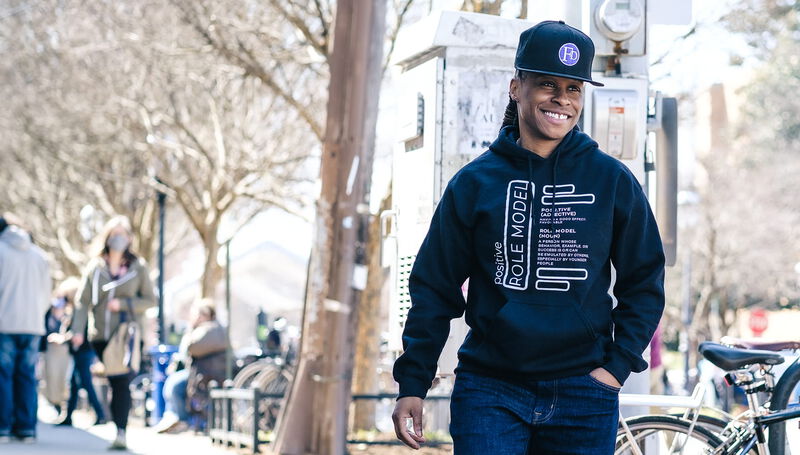
I think when I started that festival, people started to realize I'm just an ordinary person, just like everybody else, and that I was able to achieve such a great success with my brand that it's an attainable goal for the average person. If you have the resources and you have the right individuals around you, then it's definitely a goal that can be accomplished. That's when I started to get more and more individuals reaching out to me, whether they had started their process or looking to start their process or were in the middle of it and just didn't know where to go.
I mean, I feel like I've opened my door to so many brands. I've leveraged our distribution company to help a lot of brands get placed in the market because I know the difficulty of what it takes to get placed. At the end of the day, if the distributor doesn't pick you up, then you just have a brand. And so I try to do as much as I can. These young, newer brands that are entering into this space, I try to mentor them as much as possible on the industry standards, things of that nature, because they're coming in not really knowing much.
But I'm happy to see more of us striving to gain some market share in this particular industry. Because, again, we do spend a lot of money in this industry. And when you see more people that look like you doing certain things, you're more inclined to believe that is something that you can achieve as well. So I'm definitely open to continuing the mentorship of brands. I make time for that even when I don't have the time. It is definitely a big effort in our company.
Wow, well, in the next few years, I'm hoping to grow. One thing about the brand is we're growing organically. Last year, we gained Texas and California. This year, we're hoping to close out Florida and Louisiana and really just hone in on new markets as we get them. The goal really is to have more international business. We've been looking at Japan and Singapore being our biggest market to date in terms of reorders and things of that nature. We're doing better internationally than we're doing domestically.
What I'm starting to realize is I want to put more attention in the international market. I'm looking at the UK market as well. I have family there that believes FOU-DRÉ can do very well in the areas such as Wales and things of that nature. I'm really just trying to grow the brand internationally. They're not subjected to, even though celebrity push is big, it's not as big as it is here domestically. Because they're not tied to brands based on celebrity status, they're more inclined to want to have a brand that not everybody has.
They want to have something very exclusive. And I think that's why we do so well in the Asian market. Not to mention FOU-DRÉ being infused with the lychee fruit. I think it's very palatable for that area, especially with the ginger and things of that nature. So it is definitely a unique vodka, and it does very well internationally. So I definitely see us growing our international footprint in the next two to five years while simultaneously slowly growing the US footprint, market by market.
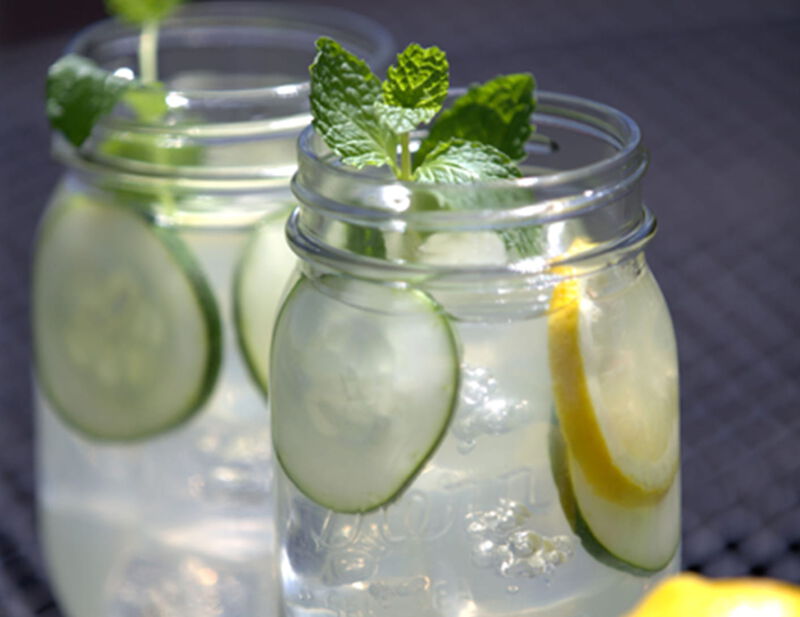
I mean, of course, we definitely talked about trying FOU-DRÉ chilled, neat, or over ice. That is definitely how we encourage those who first come into contact with the product to at least try it so that they can get the different flavor profiles on their palate. If you're a light drinker and you prefer less alcohol, then I definitely say try with some sparkling water or sparkling soda with maybe with a splash of lemon or lime.
When it comes to taking it to the next level, and I love to see what FOU-DRÉ is capable of doing, I say let your imagination lead your creations. The vodka is what I consider to be a year around vodka because of the different fruit elements in there with the pomegranate, lychee, ginger, kiwi, and lime. We don't consider ourselves a flavored vodka because we're not a particular flavor. We're just FOU-DRÉ. We're not a berry or a citrus. We have those four fruits in a root that makeup what FOU-DRÉ is.
In the wintertime, we were big on the spices, your apple ciders, your cinnamons, your cardamon, things of that nature. We create different cocktails utilizing those things. In spring, we play a lot on the lychee fruit, that aromatic elderflower type of feel. We'll do a lot of stuff with sparkling rosé or Prosecco. We do things like a cucumber-basil lemonade: a refreshing cocktail that doesn't really call for much – just fresh ingredients, some lemons, and call it a day.
So definitely, I say, depending on the season, we do a lot of different things. And then for your “manlier drink,” we do a lot with different dark rums and different whiskies. We have a few cocktails that I would say a man would appreciate; that would definitely be something they would enjoy.
I definitely think FOU-DRÉ is one of your most unique products on the shows today. It definitely is a vodka for those who love vodka. And for those who aren't necessarily vodka drinkers. I definitely think it's one that will have you reconsider the vodka space because, at first smell, it doesn't smell like a vodka. At first taste, you kind of wonder are you really drinking vodka. So it is definitely a spirit that I think is for everyone, even the non-vodka drinker. It is unique.
I definitely just want to talk about or touch base on the industry in itself and how I believe it's come a long way in terms of being inclusive. In terms of minorities in this space, it is still an unequal playing field, to some degree, where minority brands have a hard time thriving equally. But we've come a long way. We definitely have a lot of work to do. I continue to try to utilize my voice, my platform. I do so much in this industry to continue to bring awareness and visibility to minorities in this space because it's a tough industry to begin with, but to just be overshadowed by the bigger brands, they don't really have a voice. So this is why we have the festival. I just wanted to own a vodka brand. I never thought I was going to create a distribution company where now I have 17 brands in my portfolio that I'm responsible for distributing in the DC/Maryland area.
So while I'm trying to grow my brand, I'm trying to help other brands grow in this space as well. I definitely think, and I hope to see more inclusivity with minorities in this space and getting the resources that they need in order to help them get to the next level. Again, it's a tough space to be in, but there's some really great brands out here that took a leap of faith, got into this industry, created a great product, and now they just need any extra assistance. I can take them so far, and I'm hoping to see the bigger guys, once I get them going and build them up, that the bigger guys take them to the next level as well. So definitely looking for more growth in terms of minorities in this space. I'm a big advocate for that, and I try to do everything on my end. But definitely looking for the bigger players in the industry to do their part and make some room because it's a big enough pie for all of us to eat from. I just think that it's time that we lend a hand to the smaller guys, especially in this space.